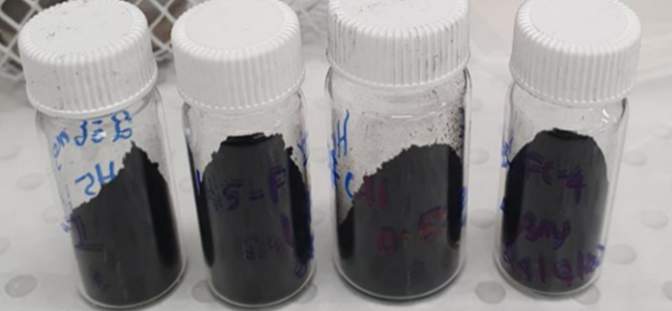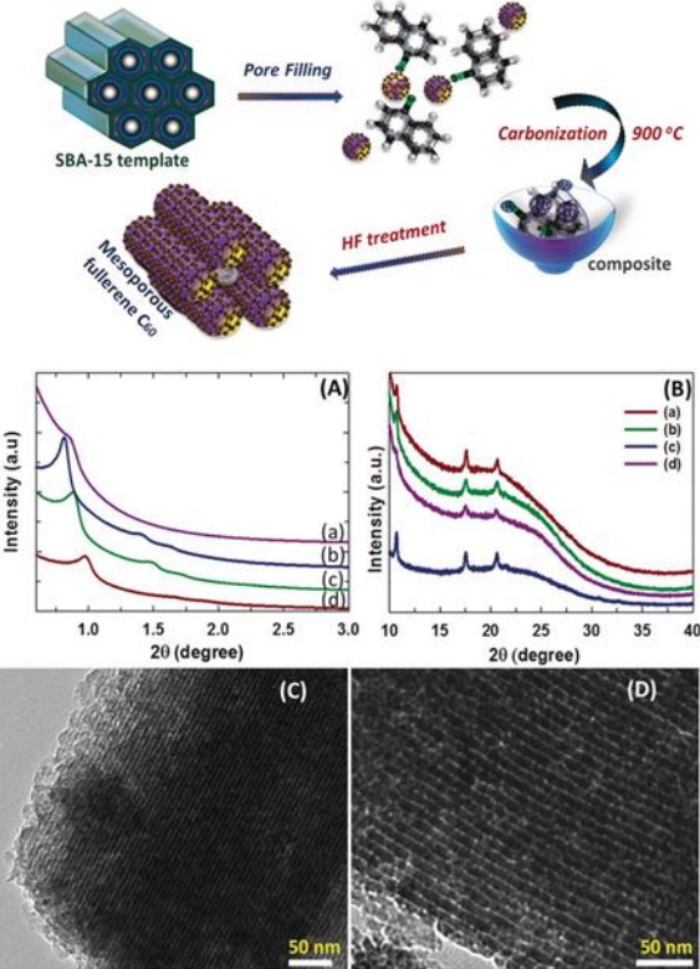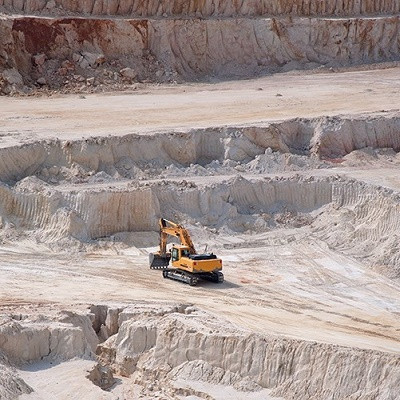Andromeda Metals Ltd and Minotaur Exploration Ltd’s Natural Nanotech Pty Ltd (NNT) research and commercialisation JV has made a technological breakthrough by producing halloysite-based nanocarbon (fullerene) materials from Great White Project halloysite-kaolin. Enhancing this breakthrough is the successful activation of the material with functional additives.
NNT is working with the University of Newcastle’s Global Innovation Centre for Advanced Nanomaterials (GICAN) towards commercial solutions for high-tech applications, based on the halloysite nanotube material sourced from ADN's and MEP’s high-grade JV halloysite-kaolin deposits in South Australia, including the Great White Kaolin Project.

Nanocarbon fullerene product made from Great White Project halloysite-kaolin
New halloysite markets
Andromeda is excited by these world-class results achieved by GICAN in a relatively short period of time using halloysite sourced from Great White and the opportunities they present to develop new markets for halloysite in the emerging high growth area of nanotechnology applications.
This material is proving to be the best alternative to the very expensive commercial products currently synthesised using mesoporous silica, and the company expects the process should be easily scalable at low cost.
Andromeda has a market cap of approximately $257.2 million and shares have been as much as 18% higher to 16.5 cents intra-day.
Commercial solutions
The commercial solutions for high-tech applications that NNT and GICAN are working on include:
- Hydrogen storage;
- Remediation of wastewater;
- Detoxification of pollutants;
- Energy storage technologies;
- Antibacterial applications; and
- Herbicide and pesticide applications.
Having demonstrated potential applications at the laboratory scale, the GICAN team is nearing completion of the construction of a pilot plant for commercial-scale sample preparation and test-work, with particular reference to the carbon capture and conversion potential of Great White Project halloysite-kaolin.

Fullerene carbon nanostructures produced from halloysite-kaolin.
Engineered fullerenes
GICAN is developing technologies for carbon capture, and at the same time, the technology to convert the adsorbed CO2 into clean fuels such as methane and methanol.
Following the success with the capture of CO2, NNT-GICAN is addressing selective capture of CO2 from a mixture of gases, with carbon capture at different pressure and temperature conditions using the halloysite derived nanomaterials – fullerenes.
The multiple high-value potential applications for halloysite engineered fullerenes include:
- In batteries and super-capacitors;
- As antioxidants;
- For the controlled release of drugs; and
- As antimicrobial agents.
Range of applications
GICAN has also used halloysite-kaolin to successfully synthesise highly crystalline mesoporous C60 with an ordered pore structure and extremely high specific surface area (around 400 square metres per gram), which is showing very high supercapacitance performance.
It has also developed halloysite derived nanocarbons which show a high peroxidase activity which may be useful for water treatment including the degradation of organic pollutants.
Notably halloysite use in medical and agricultural applications also has potential.
Testing of this material for the remediation of waste water (organic and inorganic contaminants) and detoxification of pollutants such as dioxins, phenolic compounds, polychlorinated biphenyls, petroleum hydrocarbons, industrial dye effluents, herbicides, endocrine disrupting chemicals and pesticides is in progress.
Looking forwards
Andromeda is confident there are opportunities to develop new markets for halloysite in emerging nanotechnology operations.
Future work is planned around:
- Functionalised porous carbon materials for antimicrobial applications and removal of pollution;
- Optimisation of the carbon materials using varying halloysite purities;
- Production and testing of carbon material in lithium ion batteries;
- Completion and operation of the CO2 capture pilot plant; and
- Great White High Purity Alumina (HPA) membrane coating on battery separators.
Read the original article on Proactive Investors.
